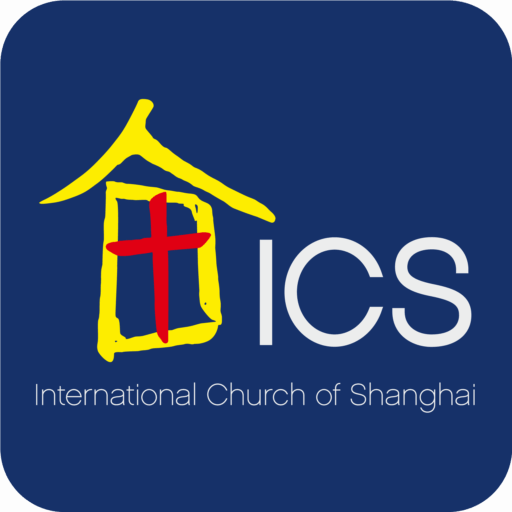2 Kings 18:5 (NKJV) He trusted in the Lord God of Israel, so that after him was none like him among all the kings of Judah, nor who were before him.
2 Chronicles 29:2 (NKJV) And he did what was right in the sight of the Lord, according to all that his father David had done.
To be a visionary spiritual leader of today, we can draw inspiration from King Hezekiah. Unlike his father King Ahaz, he trusted in the Lord God of Israel and he chose to do what was right in the sight of the Lord. He modelled himself after King David, who was known as a king after God’s own heart.
Hezekiah understood the Mosaic covenant and the importance of pleasing God by walking in His ways and statutes. Hezekiah was convinced that the reason for the plight of his people was due to their departure from the Lord and he believed that everything would turn for the better once the kingdom’s relationship with God was re-established. Hezekiah’s obedience to God’s ways and his trust were pivotal in turning around the kingdom of Judah politically, economically, morally, and socially.
Hezekiah’s faith was rooted in the promises of God found in the covenant and the experiences of King David. Hezekiah believed that God would honour the terms of the covenant if they walked in His ways and followed His statutes. The promises include:
Spiritual Prosperity: A close walk with God and recognition as a holy people (Deuteronomy 28:1).
Political Prosperity: Victory over enemies and a distinguished reputation (Deuteronomy 28:1b, 2, 7,9-10).
Economic Prosperity: Abundance in the city and the countryside, prosperity in agriculture, and successful endeavours (Deuteronomy 28:3-8, 11-12).
In our contemporary context, leaders often face a dilemma between achieving worldly success and being godly. However, it’s a common misconception that the two are mutually exclusive. Hezekiah’s life demonstrates that it is possible to be both a godly and successful leader.
Just like how Hezekiah applied his faith in God’s conditional covenant to bless them if they walked in His way, when we apply faith to what belongs to us as a child of God according to God’s promises in His Word, God will also be faithful to His covenant with us. When we consecrate ourselves to seek God’s kingdom and righteousness, we don’t need to worry about business, work, or ministry because God’s strength and wisdom are available to help us face challenges.
King Hezekiah turned the whole kingdom of Judah around when he decided to put the kingdom in order spiritually. Everything worked well when the issue of spiritual deterioration was resolved. Likewise, if your life is in a mess, you might want to look at your spiritual condition. We want to be a visionary spiritual leader who has a long-term perspective and a desire not only to prosper financially but also holistically. The decision to be that kind of leader begins now.
Sermon Series: Wise Leadership
目光远大的属灵带领
列王记下18:5 希西家倚靠耶和华以色列的神,在他前后的犹大列王中没有一个及他的。
历代志下 29:2 希西家行耶和华眼中看为正的事,效法他祖大卫一切所行的。
要成为当今有远见的属灵领袖,我们可以从希西家国王那里汲取灵感。与他父亲亚哈斯王不同,他倚靠耶和华以色列的神,选择行耶和华眼中看为正的事。他以大卫王为榜样,就是那个被称为合神心意的大卫王。
希西家明白摩西之约,也明白遵行神的道和律例以取悦神的重要性。希西家确信,他的人民之所以陷入困境,是因为他们背离了上帝,他相信一旦王国与上帝的关系重新建立,一切都会好转。希西家对上帝道路的顺服和信任对于在政治、经济、道德和社会各方面扭转犹大王国的局面起了至关重要的作用。
希西家的信仰植根于圣约中上帝的应许和大卫王的经历。希西家相信,如果他们遵行他的道,遵行他的律例,上帝就会尊荣盟约的条款。承诺包括:
属灵的繁荣:与上帝亲密同行,并被视为神圣的民族(申命记28:1)。
政治繁荣:战胜敌人和卓越的声誉(申命记28:1b,2,7,9-10)。
经济繁荣:城市和乡村的富足,农业的繁荣,以及成功的努力(申命记28:3-8,11-12)。
在我们当代的语境中,领导者经常面临着在获得世俗成功与保持敬虔这二者之间的两难选择。然而,这是一个常见的误解,认为两者是相互排斥的。希西家的一生表明,作一个既敬虔又成功的领袖是可能的。
就像希西家把他的信心应用在神有条件的约上,既如果他们遵行神的道,祂就会祝福他们,当我们把信心应用在我们作为永生神的孩子所拥有的东西上时,神也会忠于祂与我们所立的约。当我们献上自己寻求祂的国和祂的义,那么我们就不需要为我们的生意、工作和事工担忧,因为上帝的力量和智慧可以帮助我们面对挑战。
当希西家王决定在属灵上整顿犹大国时,整个犹大国都回转了。当属灵恶化的问题得到解决时,一切就都顺利了。同样,如果你的生活一团糟,你可能想看一下你的属灵光景。我们希望成为一个有远见的属灵领袖,他有长远的眼光,渴望的不仅仅是财务上的繁荣,而且希望有全面的繁荣。如今正是时候,下决心成为那种领袖吧。
讲章系列: 智慧的领导力
Image Source: pixabay.com
